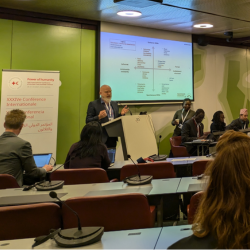-
Study
-
Quick Links
- Course Search
- Unlock Your Potential
- Still time to Apply
- Higher and Degree Apprenticeships
- Continuing Professional Development
- Book an Open Day
-
Undergraduate
- Course Search
- Application Guides
- UCAS Exhibitions
- Foundation Years
- Fees and Funding
- School & College Outreach
- Information for Parents
-
Postgraduate
- Course Search
- Application Guide
- Postgraduate Research Degrees
- Flexible Learning
- Fees and Funding
- Change Direction
- Register your Interest
-
Student Life
- Students' Union
- The Hub - Student Blog
- Accommodation
- Northumbria Sport
- Support for Students
-
Experience Northumbria
- Open Days & Events
- Virtual Tours
- Campus Tours
- Life in Newcastle
-
-
International
International
Northumbria’s global footprint touches every continent across the world, through our global partnerships across 17 institutions in 10 countries, to our 277,000 strong alumni community and 150 recruitment partners – we prepare our students for the challenges of tomorrow. Discover more about how to join Northumbria’s global family or our partnerships.
View our Global Footprint-
Quick Links
- Course Search
- Undergraduate Study
- Postgraduate Study
- Information for Parents
- London Campus
- Northumbria Pathway
- Sign up for Information
-
International Students
- Information for Students
- International Events
- Application Guide
- Entry Requirements and Education Country Agents
- Global Offices
- English Requirements
- English Language Centre
- International student support
-
International Fees and Funding
- International Undergraduate Fees
- International Undergraduate Funding
- International Masters Fees
- International Masters Funding
- International Postgraduate Research Fees
- International Postgraduate Research Funding
-
International Partners
- Agent and Representative Network
- Global Partnerships
- Global Community
-
International Mobility
- Information for Northumbria Students
- Information for Incoming Exchange Students
-
-
Business
Business
The world is changing faster than ever before. The future is there to be won by organisations who find ways to turn today's possibilities into tomorrows competitive edge. In a connected world, collaboration can be the key to success.
More on our Business Services -
Research
Research
Northumbria is a research-rich, business-focused, professional university with a global reputation for academic quality. We conduct ground-breaking research that is responsive to the science & technology, health & well being, economic and social and arts & cultural needs for the communities
Discover more about our Research -
About Us
-
About Northumbria
- Our Strategy
- Our Staff
- Place and Partnerships
- Leadership & Governance
- Academic Departments
- University Services
- History of Northumbria
- Contact us
- Online Shop
-
-
Alumni
Alumni
Northumbria University is renowned for the calibre of its business-ready graduates. Our alumni network has over 246,000 graduates based in 178 countries worldwide in a range of sectors, our alumni are making a real impact on the world.
Our Alumni - Work For Us
What will I learn on this module?
In this module, you will develop a thorough and comprehensive understanding of the field of stylistics. You will study the history and development of modern stylistics, and the key principles and theories of literary linguistics. Surrounding the key principles of texualism and contextualism, you will study three strands of stylistics, namely functional stylistics, narrative stylistics and cognitive stylistics. Within each of these strands, you will study how relevant research methods can help you explore a wide variety of linguistic features in prose fiction, poems, plays and other literary and non-literary discourses.
Through learning about the different ways in which stylistics theories and methods develop over time and interact with different academic disciplines, you will further develop and enhance your critical analytical skills and creative thinking when approaching complex and diverse issues in language use.
How will I learn on this module?
This module employs a student-centred and interactive teaching and learning approach to enable students to become active participants in the learning process. Teaching takes the form of weekly lectures and seminars. In preparation for each session, you will be provided with a short text to read and/or a short task to complete. The syllabus component presented and discussed in the lectures will be further explored and practised in seminar groups. You will be afforded the opportunity to deepen you knowledge and understanding through asking questions, discussing and debating ideas, as well as performing additional tasks. You will also be directed towards additional readings (accessible via the module blackboard and the reading lists) to consolidate and extend your learning.
How will I be supported academically on this module?
The module aims to expand your critical understanding of different, and often competing, theoretical and empirical perspectives within sociolinguistics. Lectures, seminars and tasks will develop your academic knowledge and skills, to help you attain the module learning outcomes. Your academic development will also be facilitated through engagement with the academic literature and by talking with your peers and the module tutor about your understanding of this literature (i.e. reading around the topic, and discussing and reflecting upon what you have read).
The module handbook provides details of lectures, seminars, reading lists and assessment criteria; lecture materials are made available on the eLP (see above). The module tutor will be available in lectures and seminars, as well as in ‘Feedback and consultation hours’ (i.e. ‘office hours’) and on email, to discuss any queries or concerns you have about how to excel academically on the module. Formative feedback will be provided both throughout seminar/workshop activities. Written feedback will also be provided on your 500 word formative essay, due at the end of semester 1, synthesising the results of two important empirical studies in the field of sociolinguistics (chosen by the student), prior to completion of the module’s summative assessment (an essay).
In addition, you have a designated Guidance Tutor throughout the entire duration of your programme. The academic side of the Guidance Tutor’s role includes: monitoring your ongoing academic progress; helping you to develop self-reflection skills necessary for continuous academic development; directing you to further available services which can help them with their academic skills (e.g. Library’s Skills Plus). You are advised to meet with your Guidance Tutor at least twice each semester to review your academic progress.
What will I be expected to read on this module?
All modules at Northumbria include a range of reading materials that students are expected to engage with. Online reading lists (provided after enrolment) give you access to your reading material for your modules. The Library works in partnership with your module tutors to ensure you have access to the material that you need.
What will I be expected to achieve?
Knowledge & Understanding:
1. Demonstrate a thorough understanding of the historical development within the field of literary linguistics, and engage critically with the key theories of literary linguistics
2. Critically apply relevant frameworks and methods of literary linguistics to a range of literary and non-literary texts
Intellectual / Professional skills & abilities:
3. Show familiarity with the current debates in literary linguistics, and develop your own arguments for and against debated issues
4. Be able to employ appropriate research methods in order to collect and analyse linguistic data, and to present you4. research findings convincingly with the support of academic evidence.
Personal Values Attributes (Global / Cultural awareness, Ethics, Curiosity) (PVA):
5. Display attributes to synthesise complex information, and show appreciation of ideas and values put forward in various theories, user groups and social contexts.
How will I be assessed?
This module has both formative and summative assessments. For formative assessment, you will submit an outline of your planned essay (on one side of A4 paper). You may negotiate the date of submission with the tutor, and you will receive individual feedback from the tutor with comments and suggestions on your essay plan.
For summative assessment, you will complete a 3,000-word essay (counted as 100% of the assessment). The essay will cover both the theoretical and practical aspects of stylistics that you will study on this module.
You will have the opportunity to present, discuss and improve your essay plan, and will receive consistent support and guidance from the module tutor. After you receive the summative feedback, if you would like any further discussion / advice from the module tutor, you can arrange a tutorial session during the tutor’s feedback and consultation hours.
Pre-requisite(s)
N/A
Co-requisite(s)
N/A
Module abstract
Please find details of this module in the other sections provided.
Course info
UCAS Code Q310
Credits 20
Level of Study Undergraduate
Mode of Study 3 years Full Time or 4 years with a placement (sandwich)/study abroad
Department Humanities
Location City Campus, Northumbria University
City Newcastle
Start September 2025 or September 2026
All information is accurate at the time of sharing.
Full time Courses are primarily delivered via on-campus face to face learning but could include elements of online learning. Most courses run as planned and as promoted on our website and via our marketing materials, but if there are any substantial changes (as determined by the Competition and Markets Authority) to a course or there is the potential that course may be withdrawn, we will notify all affected applicants as soon as possible with advice and guidance regarding their options. It is also important to be aware that optional modules listed on course pages may be subject to change depending on uptake numbers each year.
Contact time is subject to increase or decrease in line with possible restrictions imposed by the government or the University in the interest of maintaining the health and safety and wellbeing of students, staff, and visitors if this is deemed necessary in future.
Useful Links
Find out about our distinctive approach at
www.northumbria.ac.uk/exp
Admissions Terms and Conditions
northumbria.ac.uk/terms
Fees and Funding
northumbria.ac.uk/fees
Admissions Policy
northumbria.ac.uk/adpolicy
Admissions Complaints Policy
northumbria.ac.uk/complaints














